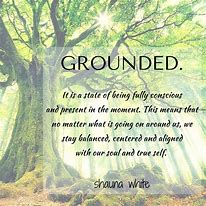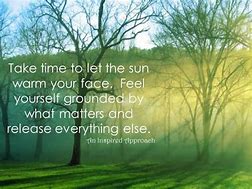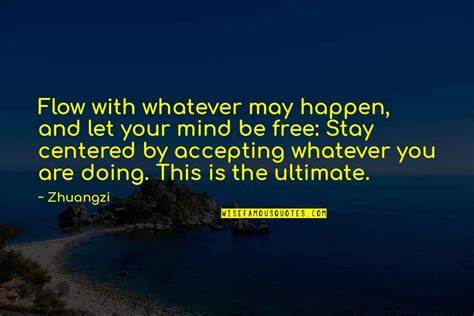Within days of each other, two different friends sent me similar items with notes saying, “This would make a good blog.” One was Joanne Raptis’ “Be Like a Tree” and the other was “Advice From a Tree.” Between the two, there were 20 lessons from trees that if followed, would enhance the quality of our life journey. I have combined and condensed the lists and present to you this week 10 life lessons from a tree.
ADAPT TO CHANGE
Adapting to change means that we change our ideas and/or behavior in order to successfully deal with what is different. Being able to adapt is difficult for most of us because we are creatures of habit; having to change our patterns and behaviors is frustrating and annoying. But, there are times when we must accept what is, let go of what was, and have faith in what will be. Adapting to any change is a very personal process that takes time and that amount of time will differ for each of us. If we:
- take it day by day (and even hour by hour within each day if need be),
- don’t rush things (give ourselves and others the time and the space),
- create familiarity in the changed environment,
- acknowledge our feelings,
- release our fears,
- take control of our attitude,
- remove the negative options,
- adopt a positive mindset,
- talk things out,
- make no rush decisions,
- think differently, and
- are resourceful and innovative, then our adaptation to the whatever has changed will be a little easier for us.
TURN OVER A NEW LEAF
When we turn over a new leaf, we stop habits that have been getting in the way of us moving forward and we begin acting in a way and doing things that allow us to do things differently which give us a better chance of succeeding in whatever we are attempting.
BRANCH OUT
Branching out means abandoning our comfort zone which will allow us to uncover what is possible. Anthony Robbins said, “If you always do what you’ve always done, you’ll get what you’ve always gotten.” We will never know what is possible or what we are capable of unless we leave the confines of what is comfortable and known.
By branching out, we:
- discover what is possible because we are forced to try new things,
- are given an opportunity to learn things about ourselves and to see ourselves in a different light,
- learn that the world is a dynamic (vs. static) place,
- turn dreams and goals in to reality,
- move forward to new beginnings,
- become more productive,
- become more resilient,
- push boundaries,
- unleash our creativity and resourcefulness,
- broaden our horizons, and
- improve our self-confidence.
The more we do something, the more comfortable we get with it. So, the more we do things that are uncomfortable for us, the more they become comfortable. We stretch the boundaries of our comfort zone every time we engage in something that brings us a bit of discomfort. What once felt scary and frightening becomes our ‘new normal.’ If we do this often enough, when we are forced out of our comfort zone, we will be better able to handle what we will be facing in that new and sometimes scary environment.
GET RID OF DEAD WOOD
Dead wood in our lives is that which is no longer useful; those things that no longer serve us or are no longer good for us. We need to let go in order to move forward. Getting rid of dead wood revitalizes us and helps us regain balance in our lives.
Someone once said, “There are things that we never want to let go of, people we never want to leave behind. But keep in mind that letting go isn’t the end of the world, it’s the beginning of a new life.” Indeed. Sometimes we need to let go of something so that we can have a new beginning. If we want to move forward with our life journey, there may be times when we need to let go of the old before we can pick up with the new – not just outwardly, but inwardly, where we keep our connections to people and places that act as definitions of who we are. We need to let go of those things that are holding us back from a vital, vibrant, relevant, happy, productive, and satisfying life.
GO OUT ON A LIMB
We go out on a limb when we do something that has some risk to it. “If your life is ever going to get better, you have to take risks. There is simply no way you can grow without taking chances.” These words were spoken by David Viscott who was an American psychiatrist, author, businessman, and media personality. We do, indeed, have to take chances and take risks in order to grow and move forward on our life journey. The risks we take on our life journey, however, should not be reckless, but rather, calculated and thoughtful. The risks we take should be driven by our vision and our goals and what we do should help us move toward those goals.
STAY GROUNDED
Being grounded entails more than just be firmly rooted “in or on the ground.” We must also have a strong inner core. When we are grounded from within, we:
- are aware of the present moment;
- believe in ourselves and exude confidence;
- are able to maintain balance and a presence of mind in all circumstances;
- stay true to our values and beliefs;
- are resilient;
- can take things in stride knowing no matter what happens, we’ll be fine;
- have a clear sense of direction, using our goals to guide us;
- maintain our own views and convictions and aren’t easily influenced by those around us; and,
- know our strengths and weaknesses.
BEND BEFORE YOU BREAK.
Bending before we break tells us that we need to be flexible. When we are flexible, we yield to what is happening to us; we adapt; we are resilient; we are able to bounce back, to recover from whatever we are facing. According to Dr. Gil Noam (founder and director of The PEAR Institute: Partnerships in Education and Resilience at Harvard University and McLean Hospital), “Having flexibility is to have the ability to shift perspectives and actions when new or unexpected events arise. This skill—or set of skills—allows us to adapt more easily to otherwise stressful and difficult situations, without becoming overwhelmed for prolonged periods of time.”
Flexibility allows us to adapt to new and changing situations more easily and with less stress and frustration. In addition to less stress and frustration, some other benefits of being flexible include the ability to:
- be open to creative solutions and approaches to dealing with what we’re facing,
- focus our mind on possibilities,
- adjust our thinking and expectations about new or unexpected situations,
- manage the unexpected,
- adapt to new or changed situations,
- be more open-minded and willing to learn from what is going on,
- go with the flow of things,
- avoid rigidity,
- take more risks and not fear failure,
- step out of our comfort zone,
- “bend” ourselves to meet the demands of daily life,
- welcome new ideas and thoughts,
- lead a more enjoyable life (especially with less stress and frustration in it), and
- gain the trust of others (because we are able to better handle the unexpected).
REACH FOR THE SKY
Reaching for the sky means we aim high; we set very high goals for ourselves. Goals help keep us moving forward. Goals are our plans for the future. Goals are what we are trying to achieve. When we set goals, we determine what result we want and then we put forth the effort to achieve that result. As inspirational author Orison Swett Marden says, “All who have accomplished great things have had a great aim, have fixed their gaze on a goal which was high, one which sometimes seemed impossible.”
STAND TALL AND PROUD
When we stand tall and proud, we display our confidence in ourselves. Confidence means feeling sure of ourselves and our abilities. On our life journey we can thrive through the many benefits of confidence, benefits such as:
- Success in what we do.
- Happiness and enjoyment in and with life.
- Strength and energy to deal with life’s challenges.
- Less doubt and more contentment and peace of mind.
- Increased self-esteem and a strong self-worth.
- A sense of being fearless.
- More positive life interactions (socially, mentally, physically…).
- Better sense of control and direction.
- A resolve to stand up for ourselves.
- Motivation to want to do more and to do better.
Our confidence in ourselves is one of our greatest gifts. We need to treasure it and we need to take good care of it. No matter what we encounter on our life journey, if we travel it with confidence, we will invariably meet with success and satisfaction.
NEVER STOP GROWING
To never stop growing means that we are constantly doing things to take care of ourselves (resting, sleeping, eating well, hydrating, meditating, relaxing…) and taking advantage of formal and informal learning opportunities to continually improve ourselves, our knowledge, and our skills. Formal learning opportunities happen in classes. Informal learning opportunities happen when we:
- work through situations in our day-to-day life,
- remain curious about things,
- make mistakes and glean the lesson(s) from them,
- read, and
- discuss things with friends and colleagues.
Life coach Angela Cirrone tells us, “Each one of us is given this amazing journey of life. It is up to us to be open to what’s in store. Some of which we can control, some of which we can’t. We need to just believe and let go as our precious story unfolds.” As our “precious story” unfolds along our “amazing journey of life,” when we begin to question who we are and where we are going, we need to take time to reflect on the life lessons from a tree to help keep us growing and moving in the right direction. And, along the way, remember to enjoy the view…




















